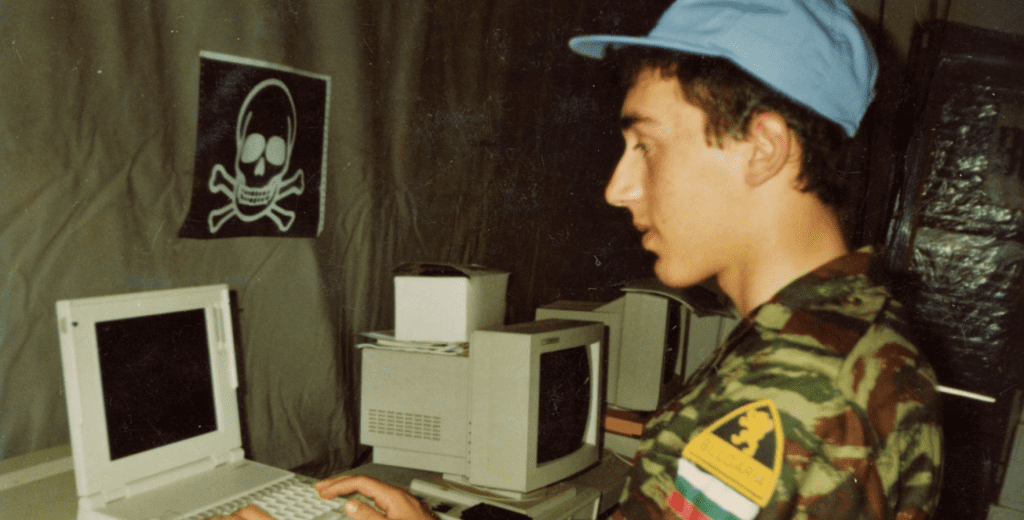By Simona Todorova
When Nikola Nikolov and his fellow soldiers landed in Cambodia in 1993 after a 13-hour long flight, they were first hit by the unbearable heat. With their clothes soaked in a matter of minutes, none of them could tell if it was their own sweat or just the humidity. Still disoriented from the long flight, nothing could numb the childish enthusiasm, which had taken ahold of them. They were bearing witness to real palm trees when just recently they had to wait in a never-ending line for unripe bananas, a sign for the approaching new year in Bulgaria.
The roads, lined with potholes big enough to bathe in, were all mud and dirt. Along those roads, tiny wooden houses stood, ready to fall apart and be brought back up again by a people whose lives were always accompanied by war and death. Dressed in ragged and stained clothes, Cambodians swam and drank from the same bacteria-infused water, took care of their cattle, and gave birth to children they could not always feed.
The aromas that filled the stiff air battled for dominance as if they too, were in a war. Decaying wood presided over mahogany but then quickly gave way to spiced food. The soldiers, overwhelmed by the mysteries of this foreign country, never imagined their time in Cambodia will stay with them even after 30 years…..
…..For Bulgaria, the mission was the country’s first military experience since World War II. A socialist state since the coup d’etat in 1944, Bulgaria led a foreign policy of isolation. The totalitarian rule of Georgi Dimitrov and Todor Zhivkov, both prominent communist leaders, led to many repressions up until the fall of the regime in 1989. Bulgarians could not travel freely to Western countries, nor could they listen to Western news and radio. The Party propaganda flooded all aspects of people’s lives.
After 1989, Bulgaria experienced a system of political pluralism for the first time in 45 years. The country began its difficult transition from a socialist country to a democratic republic, which is often cited to end with Bulgaria’s acceptance in the European Union in 2007. In 1990, Bulgaria held its first democratic elections, which were won by the rebranded Bulgarian Socialist Party. The unexpected outcome led to many protests and the widespread opinion that the elections were rigged. Meanwhile, the economic crisis intensified, stores were empty, and basic goods were in short supply. Mass protests throughout the whole country led to the government’s resignation.
At the end of 1991, the Union of Democratic Forces was the first right-wing party to win the elections. The new government’s goals were a total shift of the old system by changing the economic and political conditions inherited by socialism. The economic reform began with laws about restitution and privatization. The reform, even though necessary, led to a sharp decline in the quality of life, inflation, and rising unemployment. The government’s foreign policy also changed in the direction of warming up relations with the U.S.A. and Western Europe.


Wow, thats me pictured 🙂